All products featured are independently chosen by us. However, SoundGuys may receive a commission on orders placed through its retail links. See our ethics statement.
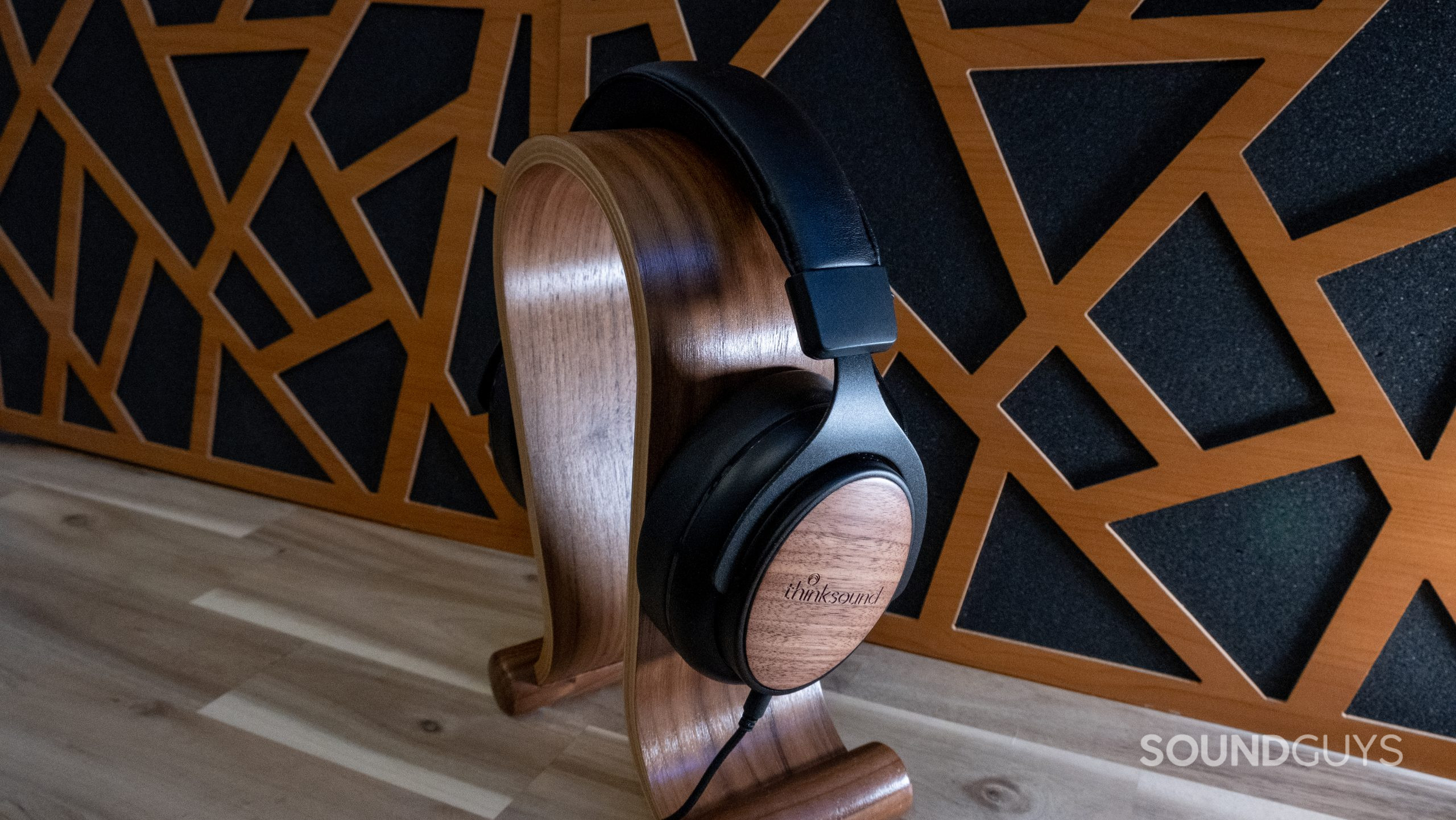
Thinksound ov21 review
February 8, 2022
Thinksound ov21
You might have heard of Thinksound in the audiophile corners of the internet. However, it’s been two years since the company’s last wood paneled outing. Now the Thinksound ov21 is here, with promises of sustainable production and great sound.
Plenty of great sounding headphones have made it to market since the last Thinksound product. Under scrutiny, does it hold up?
Editor’s note: this review was updated on February 11, 2022, to update the Alternatives section.
Who should get the Thinksound ov21?
- Environmentally conscious people who don’t want to compromise sound quality or values can splurge on the ov21.
- Minimalists can appreciate the versatility of having a single set of wired headphones with a mic and extra cable.
What’s it like to use Thinksound ov21?
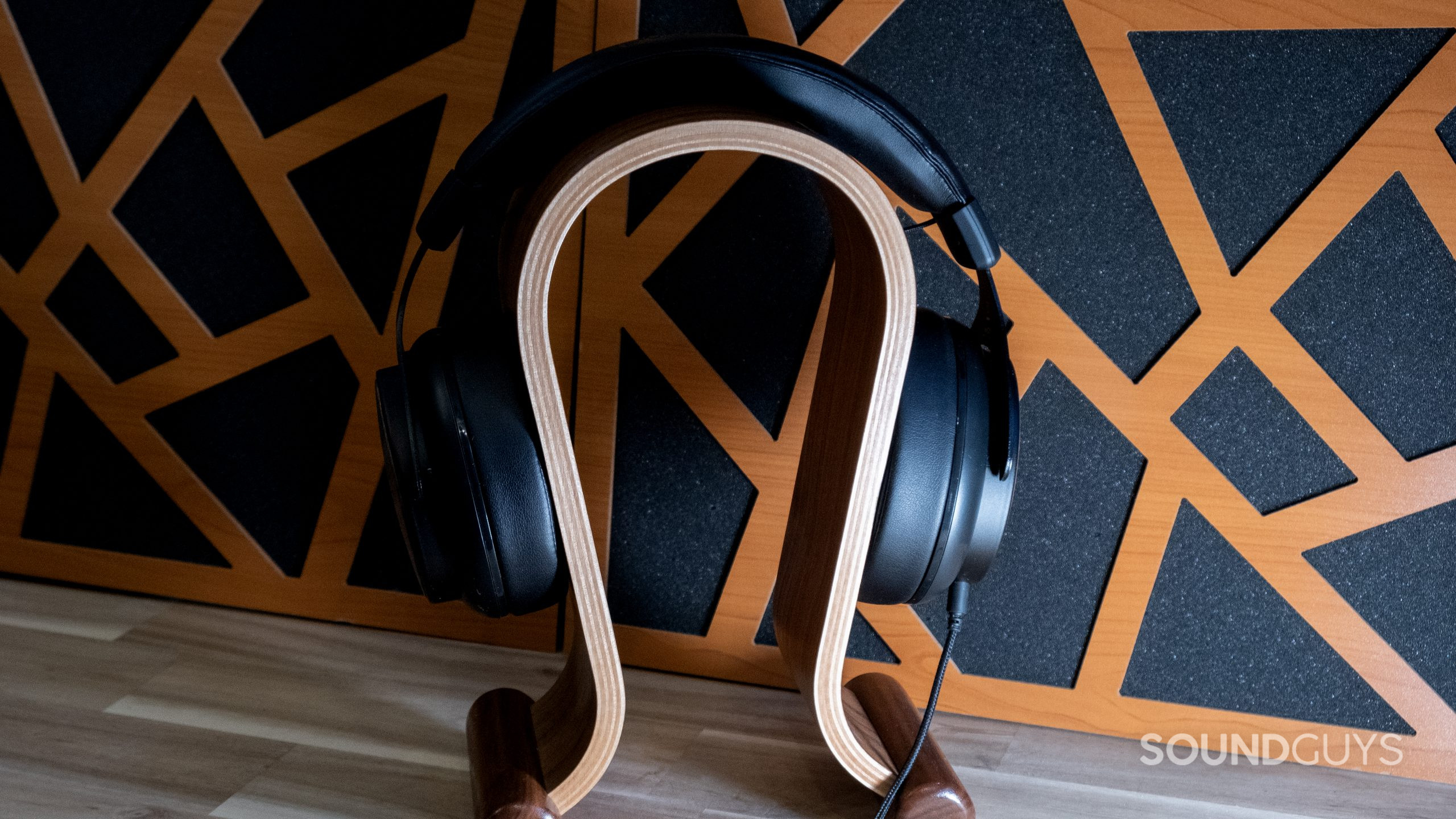
Thinksound ships the ov21 in a welcoming minimalist package of card stock and unbleached cotton. The box contains the headset, two sets of cables (one with a mic) ending in a 3.5mm jack, a 1/4-inch adapter, and two cotton bags for the cables and headset. Plug in one of the 3.5mm cables and pop the headphones over your ears and that’s it.
Bioplastic comprises the majority of the ov21 housing, save for the metal arms, ear pads, and wood veneer. It’s matte black and feels remarkably, because it’s made from cellulose, like most plastic. Vegan faux leather wraps the replaceable ear pads. The material is soft and thin like sheepskin but texturally less breathable. Pleasantly, the memory foam padding requires no break-in period, and the ov21 feels like an old friend over your ears.
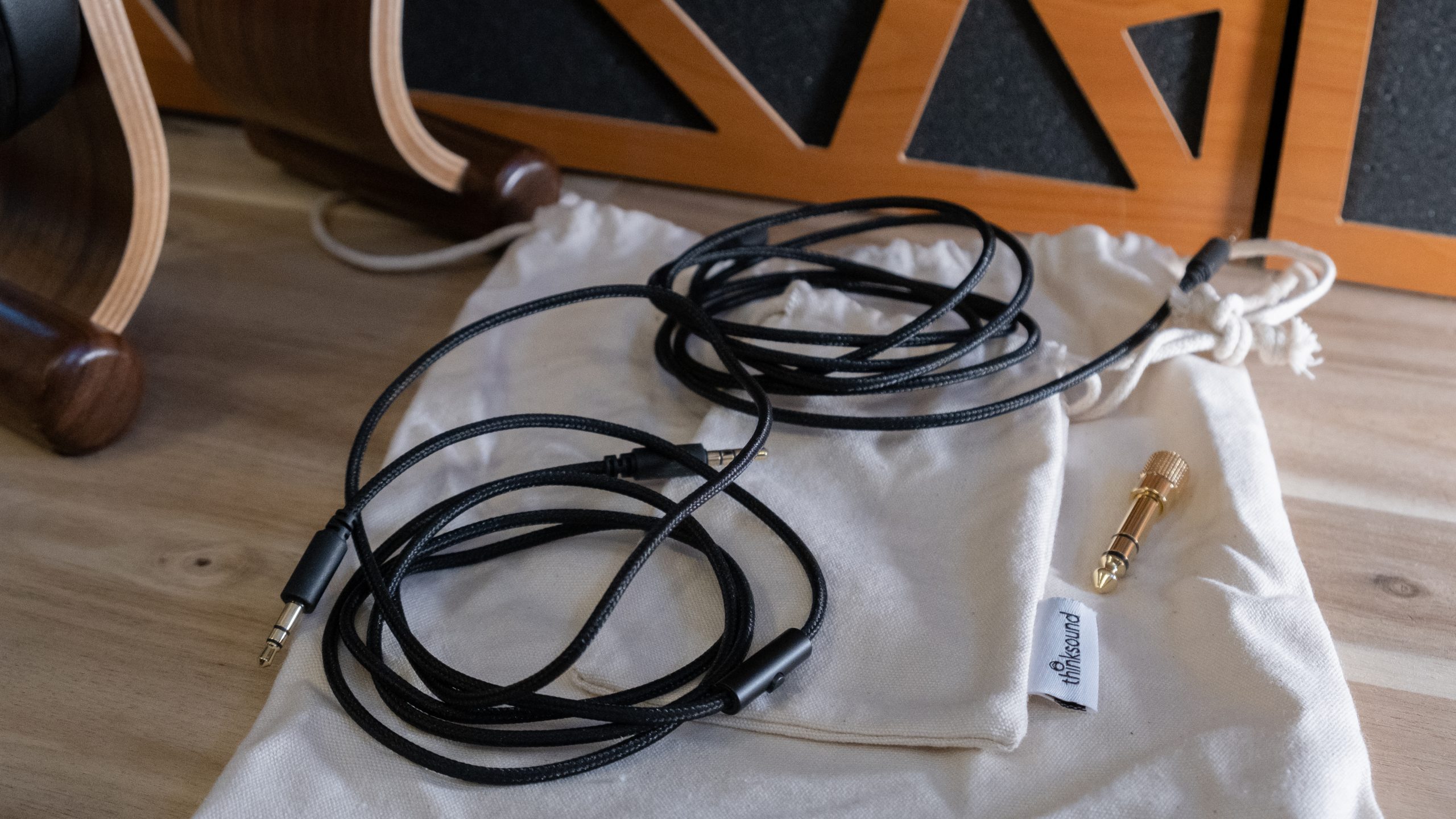
The headset does not fold down and has limited adjustability. You could take it on the bus with you if you don’t mind its size (the closed-back headphones aren’t egregiously large), but you’ll lose real estate in your backpack. It stays put on my head and distributes its weight well. The ear cups swivel, but only on a vertical plane. The metal arms have a little flex, and memory foam does the heavy lifting to ensure the ov21 fits most head shapes. After just a couple of hours wearing the ov21, it can cause uncomfortable hot spots, which makes me wish the headset offered more precise adjustability. Clamping force is totally fine for folks without glasses, but perhaps only suitable for short sessions for the bespectacled.
Is the Thinksound ov21 good for the environment?
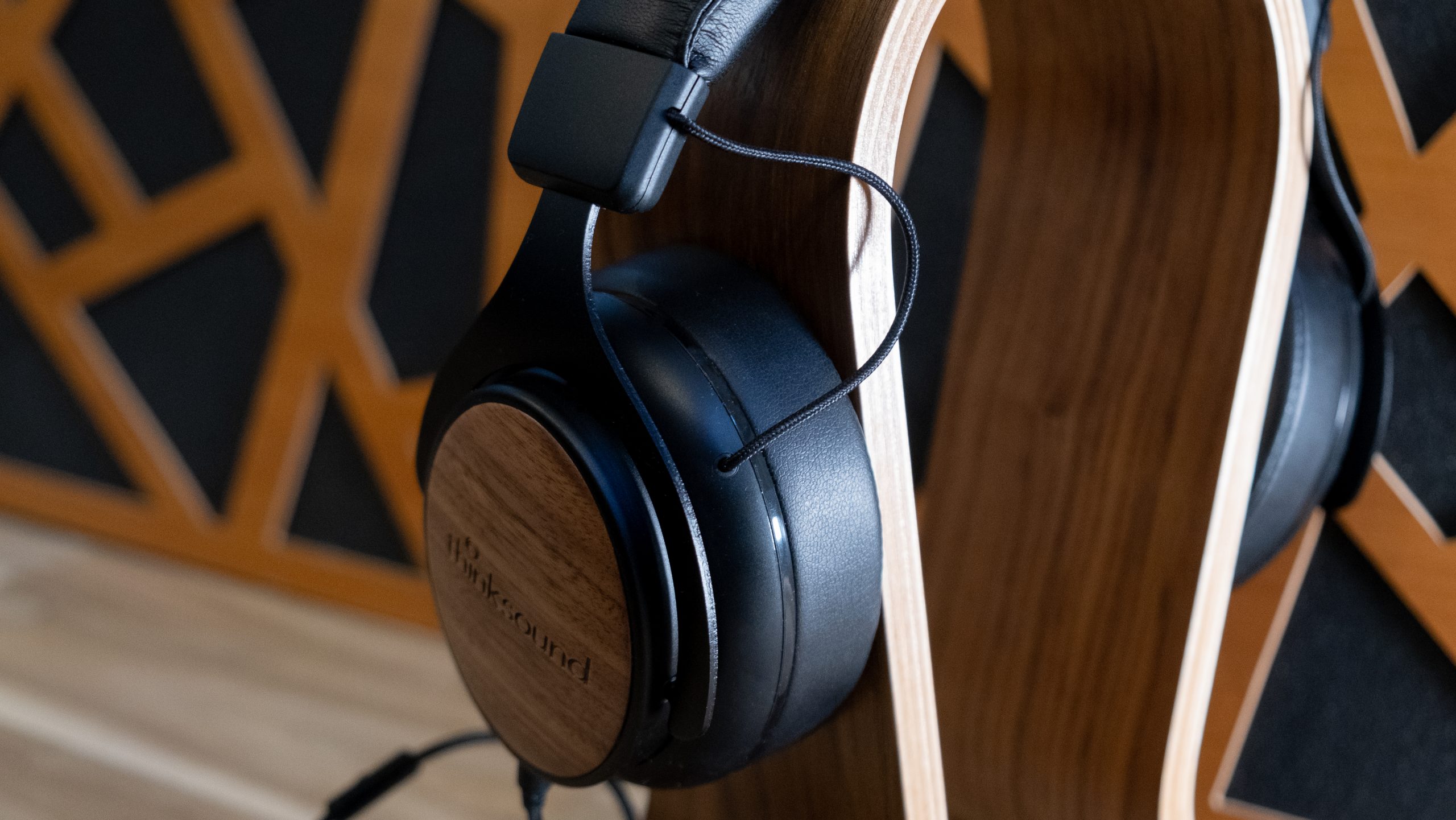
Let’s be honest with ourselves, the more we buy, the more trash we eventually create. By virtue of their easier reparability and lack of batteries, wired headphones are already “greener” than wireless or true wireless tech. Moving beyond that, we look at things like replaceable parts usually. You can replace cables (and the ov21 includes two) and ear pads with this headset. Thinksound offers a two-year warranty on the ov21, so you likely won’t want to try any major at-home repairs.
Even further along this vein, we interrogate sustainability relating to materials and how the headphones are made. Materially, the ov21 uses its share of innovative and renewable resources. The wood on the ear cups is nature’s original renewable and biodegradable product. Meanwhile, the Thinksound ov21 uses a bioplastic called Trēva by plastics company Eastman. The material has favorable acoustic properties, and it’s made of cellulose, which is basically plants.
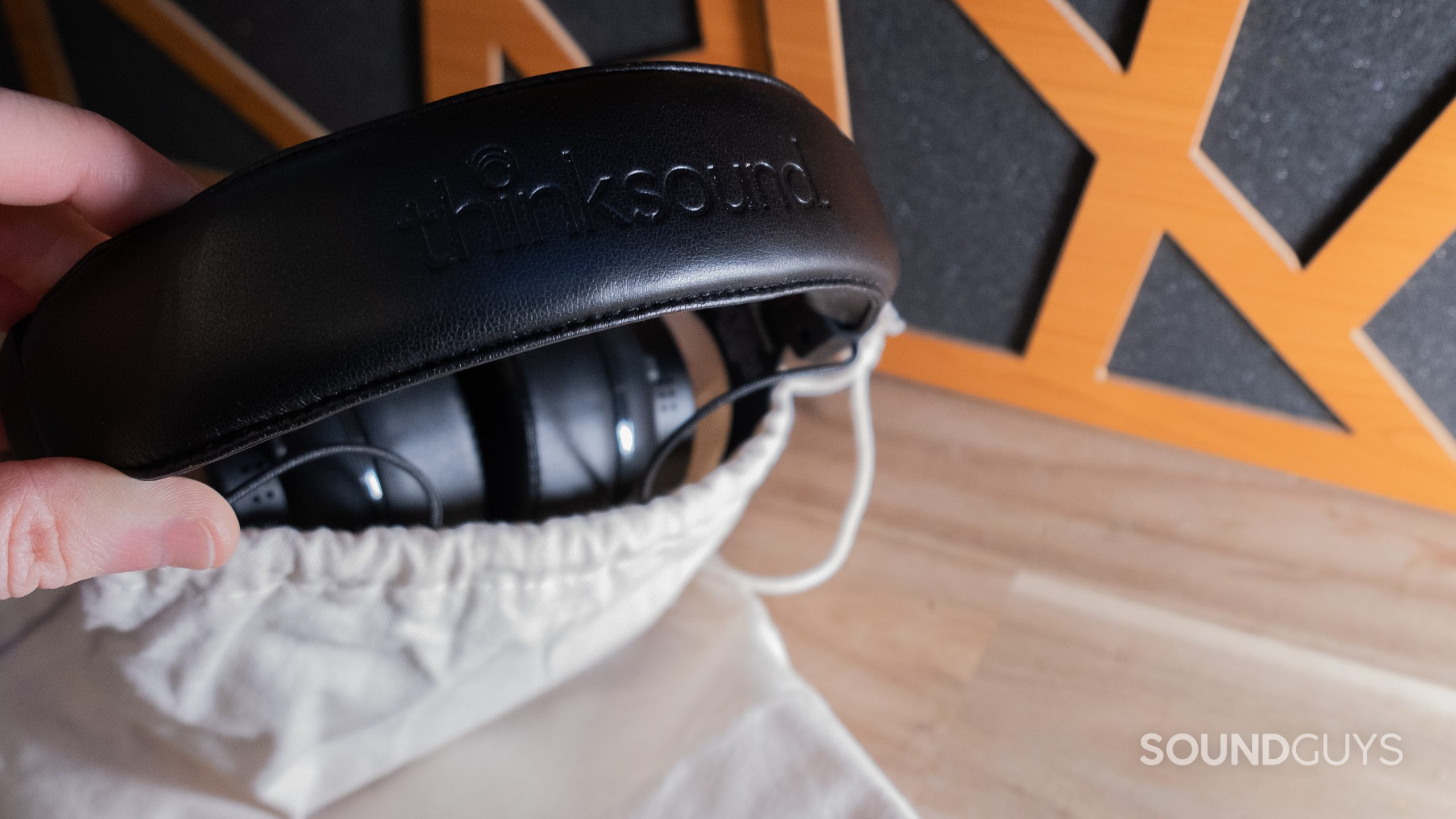
During the production of any product, you get duds and these usually go in the garbage because you can’t do much else with them. An interesting property of Trēva is unlike a lot of other plastics, it can be easily reformed, thereby creating less production waste. Trēva is also a recyclable plastic. It’s classified as a resin code 7 by ASTM International. Your region or municipality may vary in its capabilities. (Yes, lots of plastics can get recycled, but it’s a lot more difficult and limited in application than you’d think.)
Does the Thinksound ov21 have good isolation?
Loading chart ...
Passive isolation blocks out high frequencies and incidental sounds like your roommate washing dishes or conversations at a coffee shop, but the ov21 still lets in low-frequency rumbles. The ingress of low-frequency sound is normal with non-noise canceling headphones like this. However, Thinksound gives a solid effort with the ov21 blocking out at least 25dB (or thereabouts) of noise above 1,100Hz. It’s not industrial-grade ear protection, but it’s enough to help you focus in an environment with chatter.
See also: The best noise canceling headphones
If you want to block out as much background noise as possible when you don your headphones, you may want a pair of active noise canceling (ANC) headphones. Some of the best include the Sony WH-1000XM4 and Bose QuietComfort 45, but there are also more affordable options like the Sennheiser PXC 550-II.
How does the Thinksound ov21 sound?
Loading chart ...
On the whole, the Thinksound ov21 follows the gist of our target frequency response, but not well. While the ov21 is marketed as an upscale headset, its frequency response suggests a pleasurable listening experience, though not necessarily the most accurate for studio sound. The focus seems to land in the highs, which receive a generous dose above 2kHz, often about 5dB more than our ideal. This is noticeable to listeners.
Another spot to note is that the ov21 under-emphasizes sound between 90-750Hz, which means you might notice even more of the high range than you’d expect, depending on your listening material. In the lows the ov21 follows our chart very well, meaning you’ll get a good amount of bass reproduction, but not so much as to mask everything else.
Highs, mids, lows
Off the bat, I’m satisfied with the amount of low end on Slipped Disc by Lizzy Mercier Descloux. You can hear the song’s prominent bass, but it doesn’t get in the way of other instruments. Meanwhile, the ov21 renders vocals with a good amount of volume. Some instruments sound a touch quiet, like keys, and the trebly electric guitar plays too loudly, sometimes interfering with my ability to hear the vocals.
In A Mourning Town by Biff Bang Pow! sounds good on the ov21. While the song itself has a lot of mid and treble focus, vocals come through clearly, as do the bass guitar and drums. During the verses, the ov21 reproduces the hi-hat too loudly compared to everything else, due to that emphasis above 2kHz. Notably, at the chorus, high vocals, reverb, and cymbals slightly overwhelm the rhythm guitar (midrange), which is audible, but too quiet. On the whole, it sounds nice.
The potential to experience ear fatigue is present, especially if you like already treble-heavy music like indie pop. You can tame those highs with a bit of light EQ. On the flip side, the ov21’s emphasis on highs can help reveal high-frequency sounds in music mixed with more mid and low-end attention.
Can you use the Thinksound ov21 for phone calls?

Yes, you can plug in the cable with an in-line mic and use the ov21 for calls or video chats. Since the mic module is nestled on a cable, it might audibly brush against your shirt, though that’s true of all cabled mics. Voices sound a lot like your average smartphone mic with a bit more sibilance (sss sounds).
The ov21 ships with a second cable without a mic as well, though I appreciate the mic inclusion. If I’m listening to music and receive an unexpected call I don’t have to switch out my headphones on the fly. I also like that the mic and in-line control works with Spotify even when mediated by a USB-C dongle.
Thinksound ov21 microphone demo (Office):
How does the microphone sound to you?
Should you buy the Thinksound ov21?
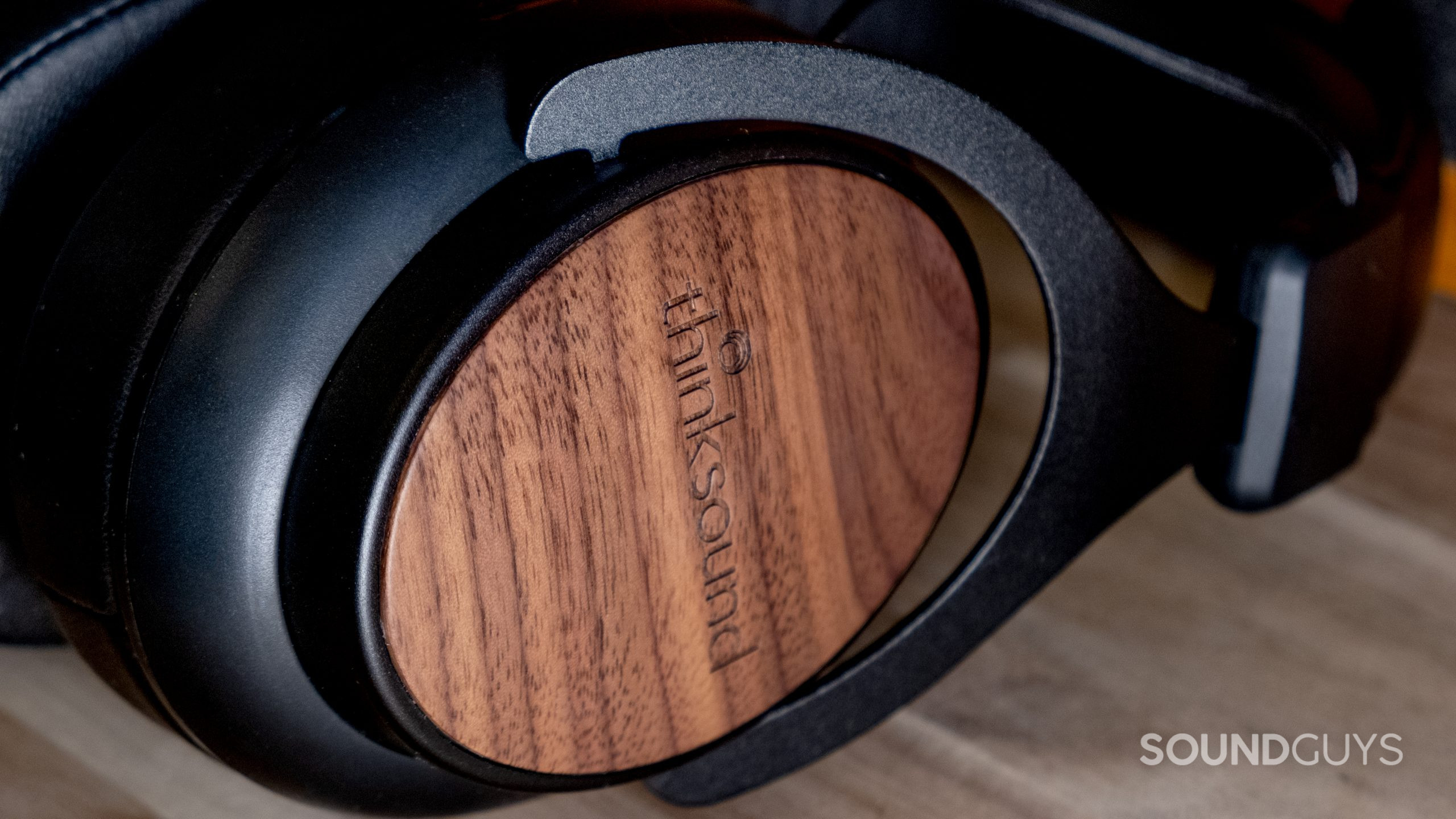
At $399 USD the Thinksound ov21 is expensive. The build quality feels nice, but somewhat inconsistent. While the faux leather, nylon braided cables, and sturdy metal arms, all feel good, the plastic is utilitarian, but not elevated to the touch. You can still feel good knowing that this plastic is better for the planet than basically any other. This doesn’t impede functionality, and most of us will be too busy admiring the solid walnut anyhow.
The ov21 is the product of an uncompromising do-it-yourself mindset. Buy it because it sounds good, or buy it because you want to support sustainable technology, or buy it because you want to support the little guy. Is it budget friendly? Not really, but the price is about right for an independent company using boutique materials. Even if you don’t care about investing in small companies, or the environment and just want a solid set of headphones the ov21 is a good choice.

The look is reminiscent of the era when everyone had massive wooden speakers, wood-paneled dining room walls, and wood-paneled station wagons. At the same time, it’s not exactly retro either, because the ov21 looks like the near future. Let’s get more innovative everyday products that use tree-derived bioplastics and work just as well as their competitors. We can’t all live off the grid, grow our own food, or install solar panels. If you can start bringing your own tote bag to the grocery store, you can probably buy more sustainable headphones.
What should you get instead of the Thinksound ov21?

Those looking to get studio cans, ought to check out the Beyerdynamic DT 700 Pro X. Composed of premium materials with replaceable parts, it’s not as environmentally friendly as the ov21 (but what is?), however, replaceable parts definitely extend its life. The frequency response is very suitable for critical listening. If you want a wireless alternative that you can rock in or out of the studio, check out the Audio-Technica ATH-M50xBT2. It has extra-long battery life and supports a host of Bluetooth codecs, along with the option for wired playback.
Related: The best eco-friendly headphones
Frequently asked questions about the Thinksound ov21
Due to its 50Ω impedance and somewhat high sensitivity, most devices including phones should be able to drive the Thinksound ov21, but if you need one, we have a list.
Thank you for being part of our community. Read our Comment Policy before posting.